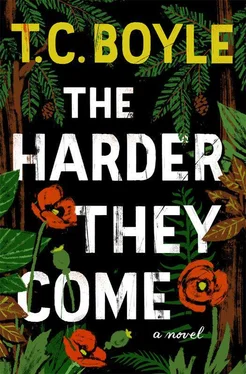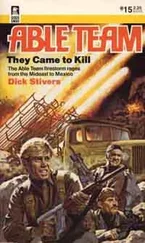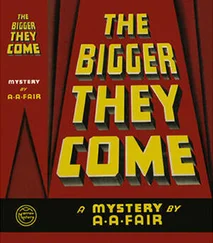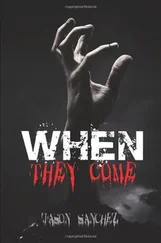It was a hateful thought and it made him miserable right through to the bone, and he sat there on the stump looking across the field of stumps that was as long as a football field but narrower, much narrower, so as not to attract attention from the air, where the sheriff’s department was always doing flyovers looking for growing operations, sat there staring at where his bunker was disguised on the hill with the brush he’d cut and the camo cover over it and at the marshaled lines of black pots glinting under the sun, but getting no satisfaction from any of it. He was hungry because he hadn’t eaten anything since breakfast at her house and the lack of food, the loss of it, gnawed hard at him, because here he was out in the woods without his stuff like some weakling, like some tenderfoot who’d run away without giving it the least smallest little niggardly thought. “Niggardly,” he said to himself, said it aloud, and then he was chanting it as he pushed himself up and started back across the field, niggardlies dropping like spit, ten of them, a hundred, niggardly, niggardly, niggardly .
He saw smoke rising from the woodstove chimney at Chip Moody’s dog-faced house and the car pulled up there under the sun, so he circled around through the trees without showing himself because why should it be Chip Moody’s dog-faced business what he did or where he went? The woods were quiet, no birds, no bugs, nothing moving. Light fingered through the bare trunks of the trees. The dirt smell was strong, humus, pine needles, rot. He heard somebody beeping a car horn off in the distance and thought of his house again, of Sara and her car and his father and the clanging mallet, and hurried down the hill to the river where he just glided across the water like those lizards in the nature shows that go so fast they never break the surface. Then he was there, back at the house, and he wasn’t calm, wasn’t calm at all.
The first thing he saw was the dog, its fur in violent motion, and it was barking at him, once, twice, till the trees took it up and then suddenly stopped because the dog came up to him and stuck out its wet snout so he could take it in one palm and feel the electricity go out of it, tail wagging now, the dreadlock dog here to stay whether he had anything to say about it or not. Then he saw her car and then he saw the vacant space where his father’s car had been and everything sucked back down from hyperspace and slowed to a crawl, all the visuals good and fine and everything as it was except for the door-shaped hole in the wall and the frame his father had cemented in there and the flat metal door propped up in the shade, ready to hang. Hang a door. He said that to himself, then said it again. All right. There would be a door into the compound. But it was metal and metal was better than wood and he’d have a key to it and he’d lock it and keep everybody out for as long as that was going to happen.
His next surprise, beyond the dog and the fact of her car being there while his father’s wasn’t, was the smell of food, a loud red shout of a smell he’d known since he was little — spaghetti sauce, that was what it was, floating atop the scent of the garlic powder in the clear plastic container you had to thump against the counter before you could get anything out of it. He stepped through the gap in the wall and saw that the door to the house stood open behind the dark mesh of the screen door, and that stopped him a moment. How had that happened, unless she had broken a window or his father somehow managed to get a key or change the locks back or somebody forgot to lock up when he went hitching up to Ukiah yesterday afternoon? No matter. He stepped into his own house as if he were a stranger and there she was, her back to him, rattling around in the kitchen like somebody’s mother. Or wife. There was music on the radio — that came to him next — and everything that was familiar about the place, which he kept neat, shipshape, he did, looked different now because she was in the middle of it like some force field that bent and distorted things, and if he thought of his grandmother, it was only the briefest stabbing spike of a thought because she turned then and saw him and smiled.
“Hey,” she said, “where’ve you been?”
There was sun, late sun now, evening sun, spilling through the kitchen window, and it took hold of her and held her there. He didn’t answer. Couldn’t answer. Nobody knew about the camp in the woods and nobody was ever going to know.
A pot hissed on the burner behind her. There came the tap-tap-tap of the dog’s nails on the hardwood floor and the dog brushed by him like a shrub on legs and entered the picture, right there, beside her.
“Your father went home,” she said. “He had to pick the lock to let me in — and I hope that’s all right.” She stopped to swipe a strand of loose hair back behind her ear with the pinky finger of her left hand, her characteristic gesture. Or one of them. She had hair too. Squirrel-colored hair. “I just thought we might have something to eat because, you know, with Kutya here and I don’t have to work tomorrow, I just thought I might as well, you know, stay.” She was grinning. She had something in her hand — a stirring spoon, his grandmother’s stirring spoon with the rust flecks in the shiny metal and the hard yellow plastic handle. “What do you say about that?”
What did he say? He said nothing, not yet. This was a concept and it was going to take a minute for it to seep in because he hadn’t thought it would go like this, not when he was out at the camp and knew that he’d left his pack behind in the backseat of her car, where it still was, the 151 and all, but right now, in this moment with her there and the dreadlock dog and the light spilling through the windows till his grandmother’s stirring spoon glowed like a wand, a magic wand, he felt so close to calm it was like a spell had come over him. And yet, and yet — there was something there still to keep the wheel spinning, and it was his father, the thought of his father, who’d gone home now, for now, but would be back anytime he pleased and with a new doorway to walk through too.
“You talk to my father?”
“Yeah. I knew him, you know, from school.”
“You talk about me?”
She shrugged. “A little.”
“What did he tell you?”
The dog pulled his front end low to the floor and stretched, the banner of his tail waving as she bent to him to scratch his back, right there in his sweet spot, but what she was doing, whether she knew he knew it or not, was stalling so she could think of what to say next. She straightened up. He was ten feet from her, in the living room still, watching the light. “He said you were going through a rough patch.”
A rough patch . That hit him like a slap in the face and he had to laugh, but it wasn’t like the laughter in the car after they’d stolen the dog back, but more of a noise that caught in his throat as if he’d swallowed something and couldn’t get it out. “Rough patch,” he repeated and laughed again. “Did he tell you about the playground? About my car? About the Chinese? Did he tell you I don’t have a job?”
“No,” she said, and she crossed the floor to him and squeezed his arm at the bicep, leaning in to touch her soft lips to the side of his face. “All he said was you’d hit a rough patch, but I don’t care about that. I like you, you know that?”
He didn’t answer.
“And since I’m here anyway I looked in the refrigerator — which is impressive the way you keep it, neat, neater than mine, by far — and found the hamburger there and the chicken sausage, and since you had all these spices and cans of stewed tomatoes and whatnot, I just figured I’m hungry and I’ll bet you are too. Okay? So let’s have some wine and maybe sit out back for a while and let the sauce cook down. You’re going to like the way I make spaghetti. Everybody says it’s the best.”
Читать дальше












